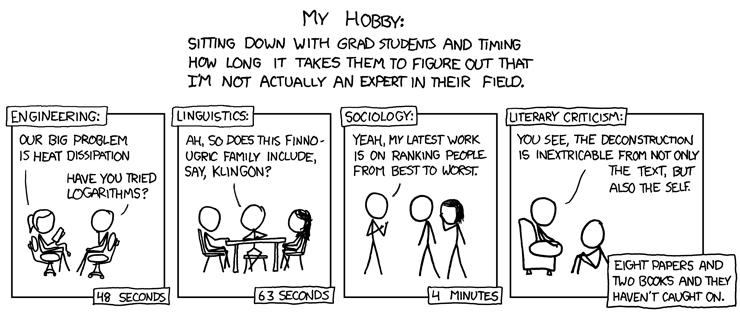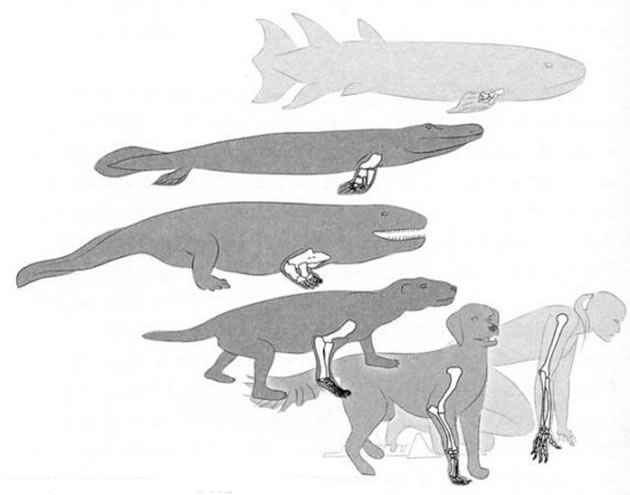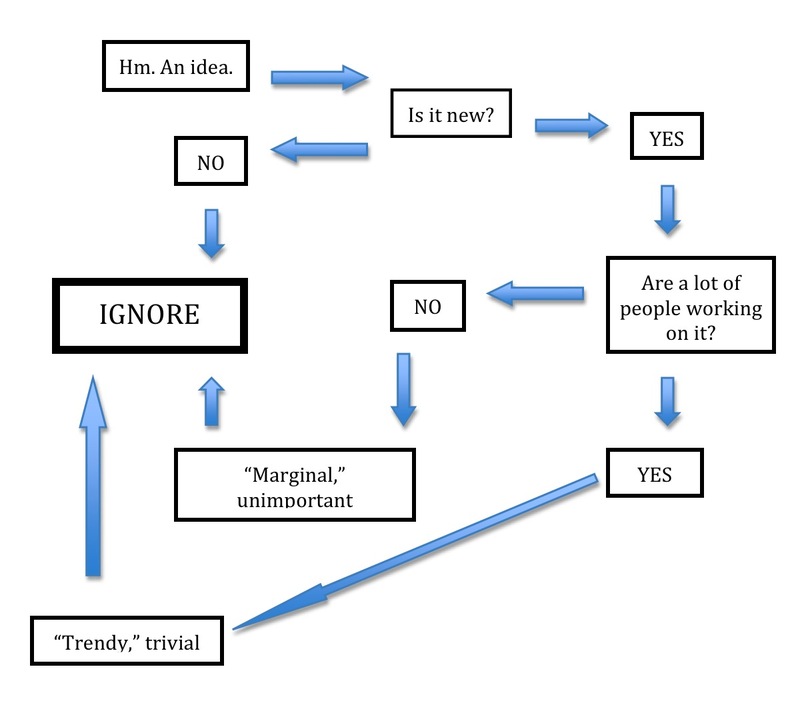Dumb headlines, vol. CXXXVII
After reading about the evolutionary origins of (some brainstem pathways controlling) social vocalization, you might enjoy seeing what you get from people who get paid for explaining things to you, and have actual editors and stuff:
"Toadfish sex hum stirs boffins"; "Honey? Gurgle, gurgle"; "Researchers report toadfish sing to attract mates"; "When fish talk, scientists listen"; "We all sing like fish"; "Spread the word: Fish talk"; "Grunting fish tell of the origins of human speech"; "Grunting, humming fish joins ancient chorus"; "Study dates origin of vocal sounds"; "Cornell scientists discover how fish 'talk'"; "Talking fish"; "Mud-dwelling Toadfish Give Clues to the Origin of Human Speech"; etc.
Read the rest of this entry »






